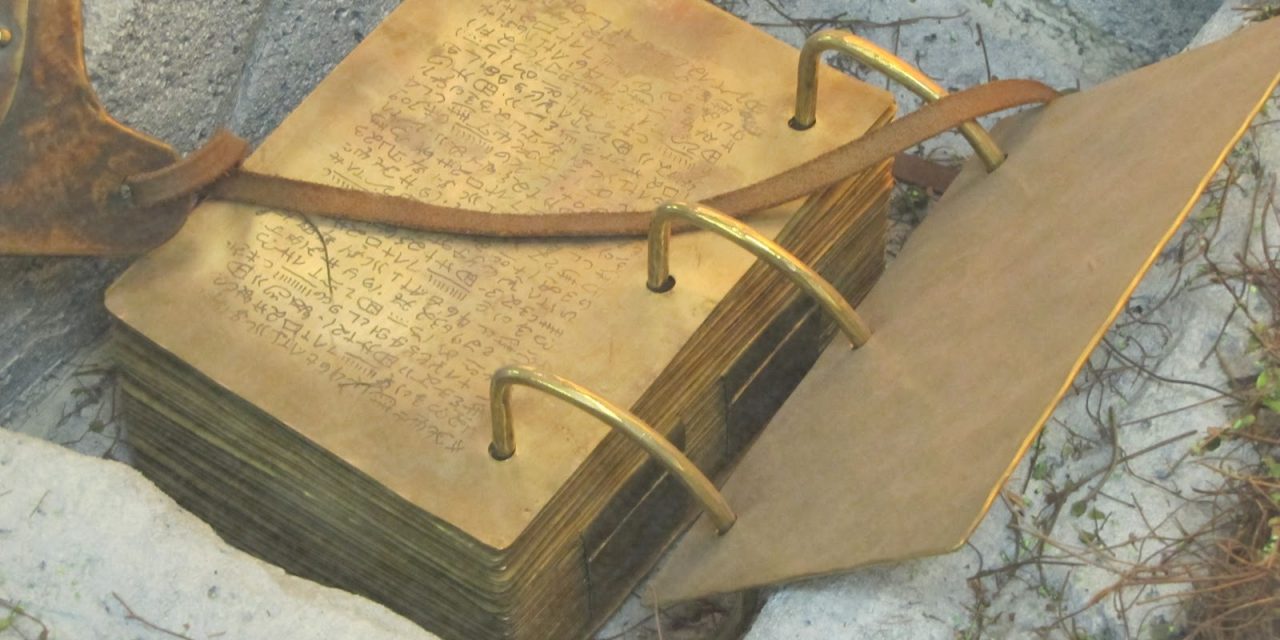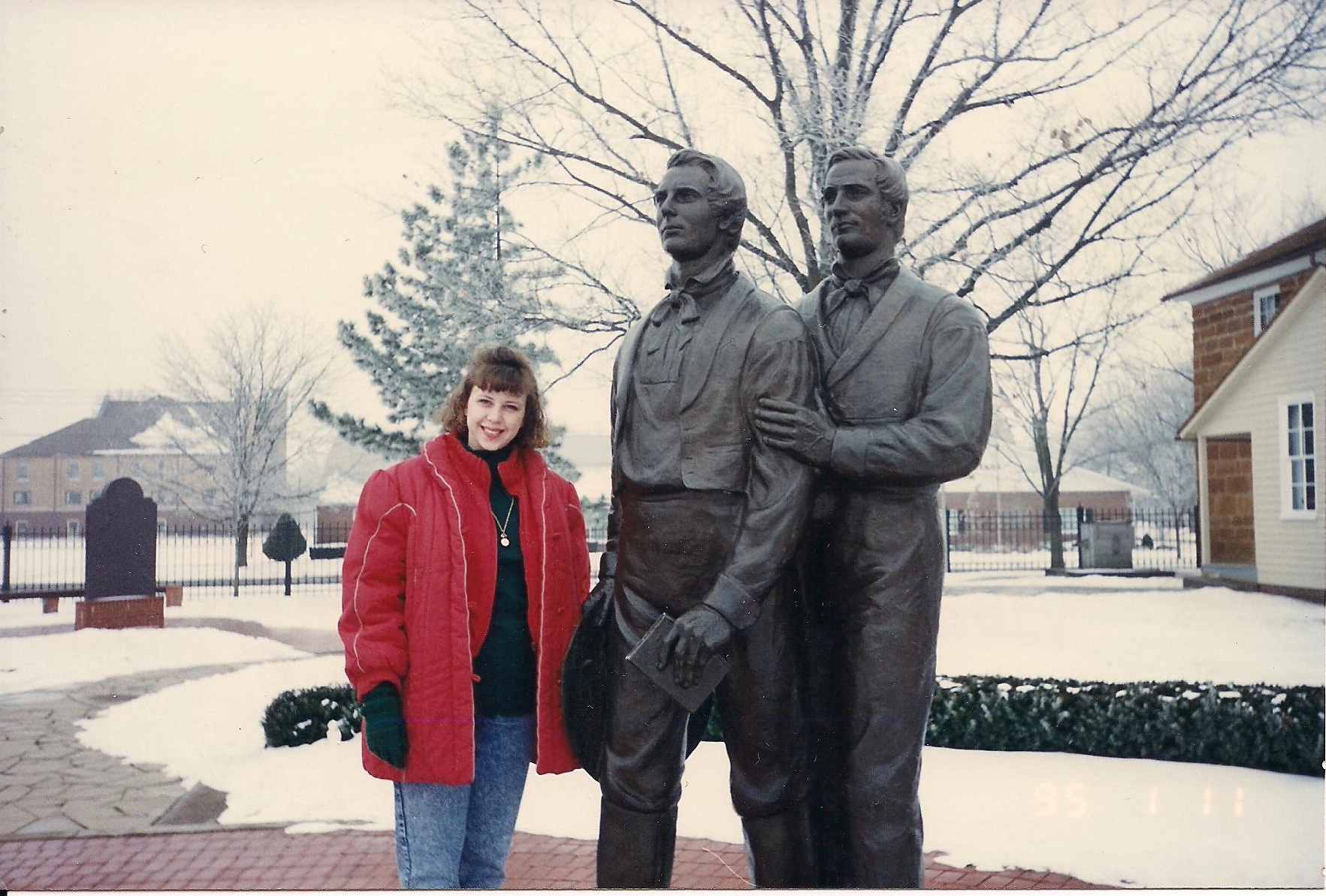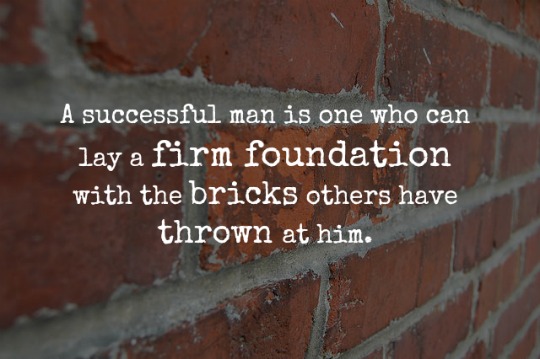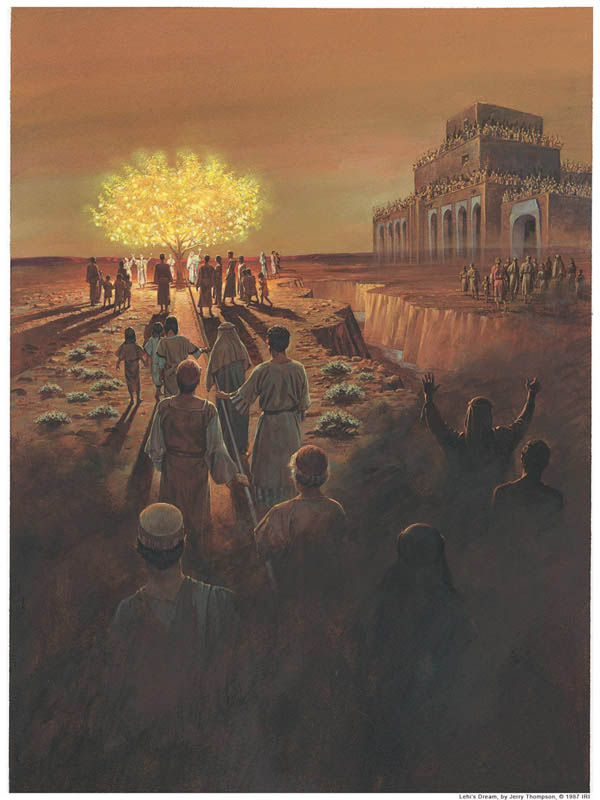![]()
The Book of Mormon–another Testament of Jesus Christ and witness to His love, ministry, and Resurrection–contains dozens of examples of fathers teaching their children to become better people. This record of prophets teaching the inhibitants of ancient America includes numerous accounts of fathers course-correcting children who have strayed from the full gospel of Jesus Christ as the Savior taught among them, and as they learned from their forefathers.
(Many instances of repentance are based on what a father said or taught when the child seemingly was not listening.–remove)
Examples in the Book of Mormon do not stand alone. There are several very clear and parallel examples of fathers in The Bible and in the Doctrine and Covenants (modern scriptural record) who deviated from paternal responsibilities. Eli, the priest who raised Samuel, comes to mind, as one who stood by silently as he sons engaged in wickedness. The scriptures record that it fell upon a young Samuel to pass the Lord’s message to his mentor: “In that day will I perform against Eli all things which I have spoken concerning his house . . . For I have told him that I will judge his house for ever for the iniquity which he knoweth; because his sons made themselves vile, and he restrained them not” (1 Samuel 3:12-13). There are more modern examples of the Lord chastising other fathers, including at one time the entire First Presidency and the Bishop of the early Church (D&C 93:40-50).
The Book of Mormon offers additional insight into fatherhood. In fact, it does so more than any other body of scripture. It is the perfect guidebook to men, who – in today’s world – want to become better fathers (Title, Ensign, May 1988).
Nephi was “born of goodly parents” (1 Nephi 1:1). Surely, one of the ways his father was “goodly” was by instilling in his son a testimony: “I did cry unto the Lord; and behold he did visit me, and did soften my heart that I did believe all the words which had been spoken by my father” (1 Ne. 2:16 (emphasis added)). And we are all familiar with Lehi’s desires for the salvation of his two oldest sons, Laman and Lemeul, exhorting “them then with all the feeling of a tender parent, that they would hearken to his words.”
Unfortunately, “tenderness” did not seem to always work with Laman and Lemeul. And, so, in verse after verse in 2 Nephi, chapter 1, Lehi repeatedly admonishes his sons to repent with strong language. Just one example will suffice: “Awake, my sons; put on the armor of righteousness. Shake off the chains with which ye are bound” (2 Nephi 1:23).
Jacob followed the example of his father in teaching the gospel to his children. The words of Enos give us a glimpse of Jacob’s role as a father: “Behold, I went to hunt beasts in the forests; and the words which I had often heard my father speak concerning eternal life, and the joy of the saints, sunk keep into my heart (Enos 1:3) (emphasis added). While growing up Enos probably did not act like he was listening to or watching his father. But he was – and that made all the difference.
King Benjamin bore testimony to his sons before his bore testimony to his people: “O my sons, I would that ye should remember that these sayings are true, and also that these records are true. . . . I would that ye should search them diligently, that ye may profit thereby . . . . And many more things did king Benjamin teach his sons” (Mosiah 1:6-8). What did King Mosiah think about his father? He thought he was awesome: “[I]f ye could have men for your kings who would do even as my father Benjamin did for this people—I say unto you, if this could always be the case then it would be expedient that ye should always have kings to rule over you” (Mosiah 29:13).
The most poignant example perhaps in the entire Book of Mormon is from the Alma the Elder and Alma the Younger. Alma the Elder, who for a period of time did “many things which were abominable in the sight of the Lord,” later repented and helped convert many hundreds of Nephites (Mosiah 23:9). On the surface, it appears that he was unable to reach his oldest son, Alma the Younger, and that the angel was brought in to do the job that the father could not. But a deeper look reveals a different answer. Alma the Younger later relates to one of his own sons what happened after the angel departed: “[A]s I was thus racked with torment, while I was harrowed up by the memory of my many sins, behold, I remembered also to have heard my father prophesy unto the people concerning the coming of one Jesus Christ, a Son of God, to atone for the sons of the world” (Alma 36:17) (emphasis added).
Like Enos, it was the words of Alma the Younger’s father etched in his memory that gave him the faith sufficient to repent and partake of the atonement. Later, Alma the Younger spent considerable time talking to his three sons, Helaman, Shiblon and Corianton – especially Corianton, who must have reminded Alma the Younger of himself (and his father). He did so out of love and because the Spirit of the Lord thus commanded him (Alma 39:12).
The examples continue. In the book of Helaman, Helaman names his two sons Nephi and Lehi after the first prophets of the Book of Mormon and exhorts them to keep the commandments of God. Helaman’s talk with his sons produces perhaps one of the most memorable verses of the Book of Mormon: “And now, my sons, remember, remember, that it is upon the rock of our Redeemer, who is Christ, the Son of God, that ye must build your foundation” (Helaman 5:12). And perhaps, equally important, is the response of his sons: “And they did remember his words” (Helaman 5:14).
The ultimate example of a father and son comes in 3 Nephi, which teaches us about the intimate and eternal relationship of the Father and the Son (3 Nephi 11:11 (“I have drunk out of that bitter cup which the Father has given me, and have glorified the Father in taking upon me the sins of the world, in the which I have suffered the will of the Father in all things from the beginning.”). Then, talking especially to the fathers in the “multitude” he taught this simple principle, among many others: “Pray in your families unto the Father, in my name, that your wives and your children may be blessed” (3 Nephi 18:21) (emphasis added). Jesus showed, by example, how to pray to his Father for others in a beautiful series of prayers in 3 Nephi 19.
Little is known about Mormon’s relationship with his father, although we do know that his name was Mormon as well and they were “pure descendants” from Lehi (Mormon 1:5 and 3 Nephi 5:20). But much is written about Mormon’s own relationship with his son, Moroni. Though the two apparently were not around each other very much—Mormon mostly communicated with Moroni through letters from the “front lines”—the exchanges were always tender and loving. One example, which follows the commandment Jesus gave to fathers to pray for their children, suffices: “My beloved son, Moroni . . . I am mindful of you always in my prayers, continually praying unto God the Father in the name of his Holy Child, Jesus, that he, through his infinite goodness and grace, will keep you through the endurance of faith on his name to the end” (Moroni 8:3).
And the love was reciprocated. After all, in his declining years when he “wandered” for the “safety of [his] own life, Moroni kept his father’s letters in his possession and added them to the Book of Mormon after he “had supposed not to have written any more.” (Moroni 1:4.)
It was a loving and lasting testament to the book his father compiled that “was written for us today.” (“The Book of Mormon is the Word of God,” Ensign, May 1975, 63).
And he shall go forth, suffering pains and afflictions and temptations of every kind; and this that the word might be fulfilled which saith he will take upon him the pains and the sicknesses of his people (Alma 7:11).






Recent Comments